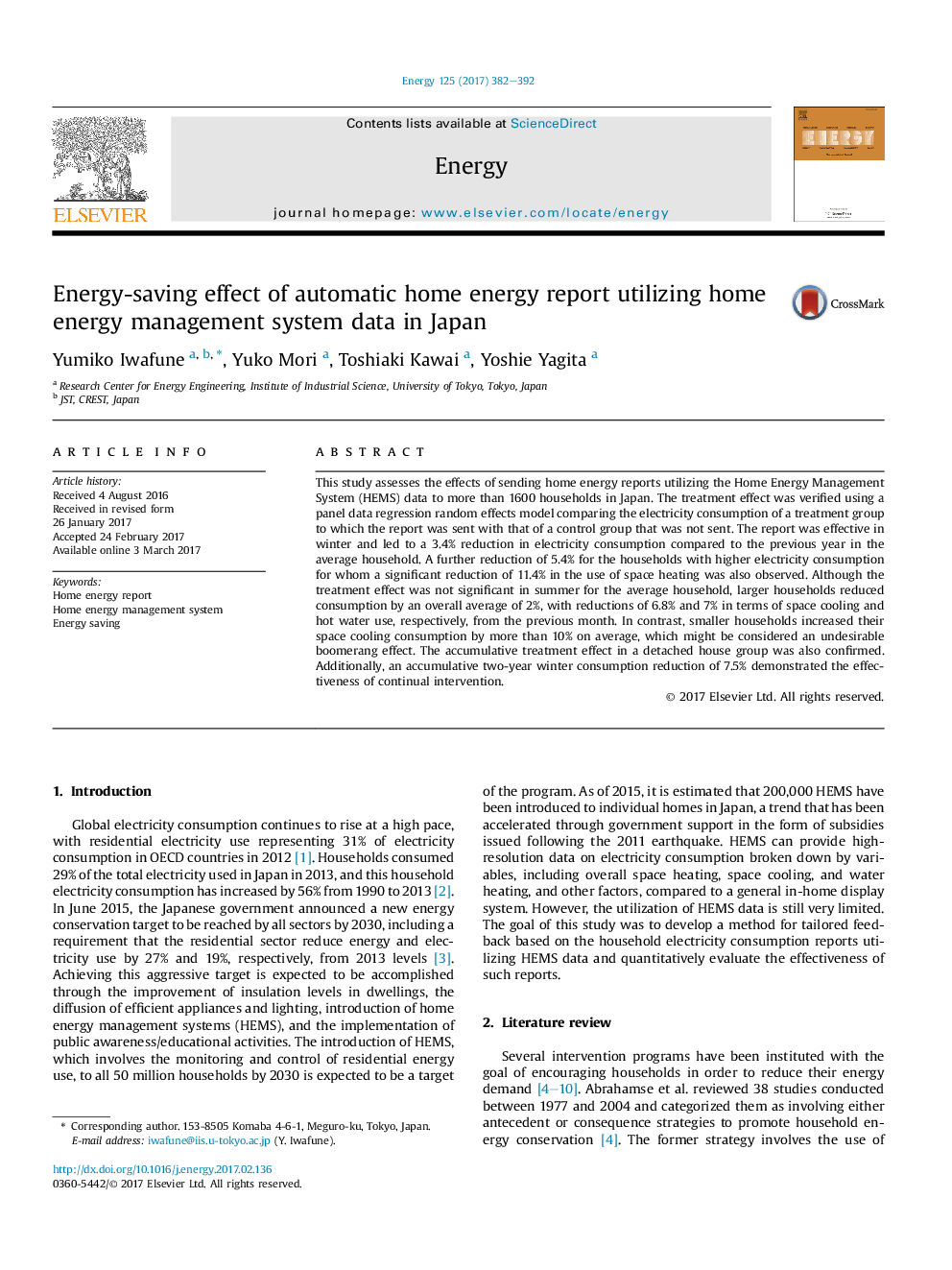ترجمه فارسی عنوان مقاله
اثر صرفه جویی در انرژی از گزارش خودکار انرژی خانه با استفاده از داده های سیستم مدیریت انرژی خانه در ژاپن
عنوان انگلیسی
Energy-saving effect of automatic home energy report utilizing home energy management system data in Japan
| کد مقاله | سال انتشار | تعداد صفحات مقاله انگلیسی |
|---|---|---|
| 100400 | 2017 | 11 صفحه PDF |
منبع

Publisher : Elsevier - Science Direct (الزویر - ساینس دایرکت)
Journal : Energy, Volume 125, 15 April 2017, Pages 382-392
ترجمه کلمات کلیدی
گزارش انرژی خانه سیستم مدیریت انرژی خانه ذخیره انرژی،
کلمات کلیدی انگلیسی
Home energy report; Home energy management system; Energy saving;

